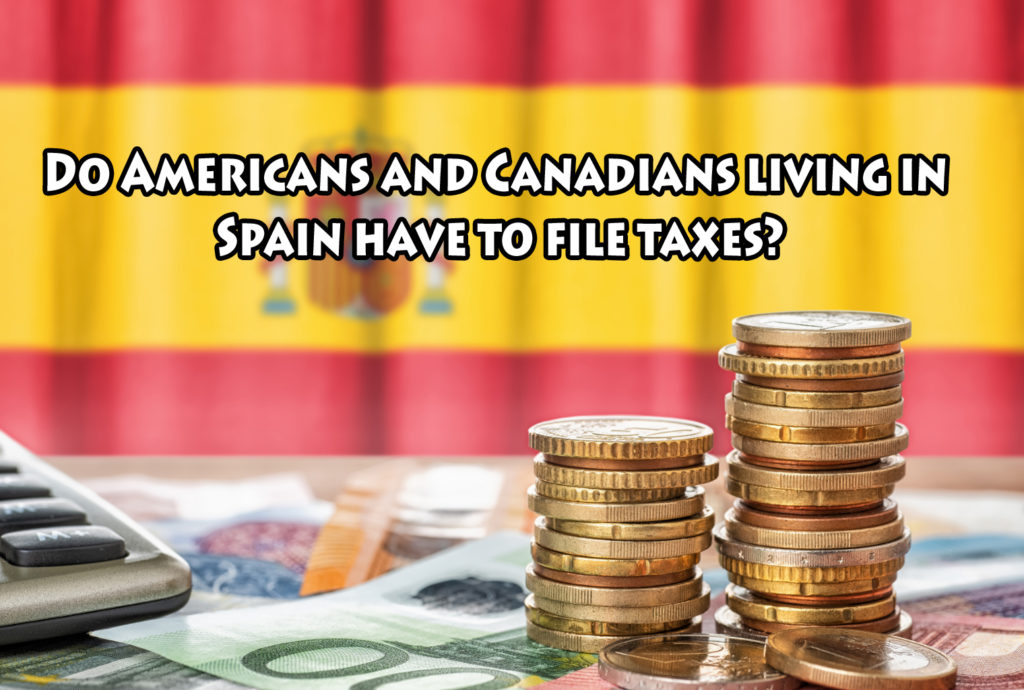The Digital Nomad Visa in Spain
Are you a non-EU citizen who wants to live in Spain while working remotely?
That wasn’t a possibility until Spain instituted the Spanish Digital Nomad Visa in June of 2023. Now you can live and work in Spain, enjoying everything this country has to offer.
This post covers everything you need to know about the Digital Nomad Visa in Spain: the benefits of having this visa, how to obtain it and the necessary conditions and requirements.
What is the Spanish Digital Nomad Visa?
If you’re a non-EU citizen who wants a visa that allows them to work remotely in Spain and even has tax advantages, you’ve come to the right place. You are either employed by a foreign company who is allowing you to work remotely from Spain OR you are self-employed with clients globally/online outside of Spain.
If you meet the requirements, the application process should go smoothly. You can apply for the permit while on a tourist visa in Spain OR from your home country.
You can even do a joint application with your family members (spouse and children), as long as you meet the financial requirements.
This Digital Nomad residency initially lasts for 3 years and is renewable for another 2 years. After 5 years with this temporary residency, you can then apply for permanent residency. All these years count towards citizenship (if you wish to get Spanish citizenship after 10 years).
Plus, being the digital nomad that you are, one of the main benefits of this residence permit is that it will allow you to travel within the Schengen Zone. So you can even work remotely from somewhere other than Spain for a week or two (Remember that you can’t be out of Spain for too long if you would like to apply for citizenship later on).
The digital nomad visa is the preferred means for nomads looking to teach English in Spain“
Digital Nomad Visa Requirements
Before we list the necessary documents, let’s discuss the rules you need to follow to be eligible for this visa.
As mentioned, the companies or clients whom you have a working relationship with must be located outside of Spain.
However, if there is any income coming from within Spain or from Spanish companies, it cannot make up more than 20% of your total income. So, yes, you can work in Spain with the Digital Nomad Visa, as long as the money you make from the job does not exceed this percentage.
To be eligible for the digital nomad visa, you must have:
- Proof that your employer/the company has been operating for at least 1 year prior to your application and that they have specifically stated that your position allows for remote work. If you are a freelancer, you must still also be working for at least 1 company outside Spain that specifies remote work.
- An existing employment relationship with the said company three months prior to your visa application or, if you are a freelancer, have a freelance relationship for at least 3 months prior to your application.
- A contract with the said company for at least 1 year.
Then, the rest of the general document requirements include:
- National Visa Application Form (find it here)
- Paid corresponding administrative fee 790 038
- Clear criminal records in Spain and any other country you’ve lived in for the last 5 years
- Full-coverage private health insurance in Spain. Note: We recommend getting your private health insurance with Innoinsure. Their insurance policies are comprehensive and meet all Visa requirements. More details on the companies and their policies here and here. No problems using foreign credit/debit cards.
- Bank certificate demonstrating that you have at least €25,000, which is 200% of the minimum wage in Spain, and €9,441 for each additional family member, 75% of the minimum wage in Spain.
- You can also show a job contract to demonstrate the possession of these economic funds.
- Proof of 3 years of work-related experience or a graduate or post-graduate degree from reputable academic institutions .
Remember that all official foreign documents must be translated to Spanish and be legalized and apostilled.
How to apply for the Digital Nomad Visa in Spain
As stated above, you can apply for the Digital Nomad Visa while you are already in the country on a tourist visa… or you can begin the whole process from your home country.
The steps between both are slightly different, but, ultimately, the permit is always processed by the UGE (Large Business & Strategic Groups Unit), the same agency that administers the Golden Visa.
Let’s go through both processes.
If you apply from Spain, you can either go directly to the UGE in Madrid or submit your documents online.
One of the pros about this residence permit is that it falls under the Entrepreneur’s Law, which means that you will benefit from a fast-track resolution in just 20 days. The applicable administrative silence is positive, which means no response within 20 days equals a successful application.
If you apply from your country of origin, you would first have to do the process for a 1-year visa at the Spanish Embassy or Consulate there.
Once you are in Spain, this visa can then later be modified to the residence permit or TIE (Foreign Identity Card). To obtain this TIE, you would have to go to a police office to register your fingerprints and, around a month after, pick up the actual residency card.
Taxes for the Spanish Remote Workers Visa
Another reason the Spanish Remote Workers Visa is attractive to many are the tax benefits that it offers for up to 5 years.
With this visa, you will be taxed under a Non-Resident Income Tax Regime. This means less taxes for your generated income compared to the regular income tax.
The only thing is that you will need to process a different application with the Spanish Tax Agency to become a non-resident for tax purposes. You can begin this process in the 6 months after getting your residence permit.
Basically, if you haven’t resided in Spain for the last 5 years, you will only have to pay a flat tax rate of 24% of your work income (up to €600,000) instead of a progressive rate that could increase to up to 48%.
You also won’t have to pay the wealth tax or make an informative declaration for assets (a.k.a. Model 720).
Lastly, for your first and second years with the Digital Nomad Visa, you will be able to request the deferral of the IRNR (your Spanish non-Resident tax) without interest.
Is the digital nomad visa worth it?
So you can now live/work in Spain, obtain temporary residency with the option of working towards permanent residency and/or citizenship while also paying a low tax rate – all these reasons demonstrate that the Spanish digital nomad visa is definitely worth it.
If you have any questions, or need any help with the whole process, contact the lawyers at Balcells Group.
Related: How to Get a Spanish Non-Lucrative Residence Visa (a step-by-step guide)

Related: Do Americans and Canadians living in Spain have to file taxes?


Hi. Please can you help me with an application for a digital nomad visa?
Hi James. Do you want me to pass on your information to Balcells?